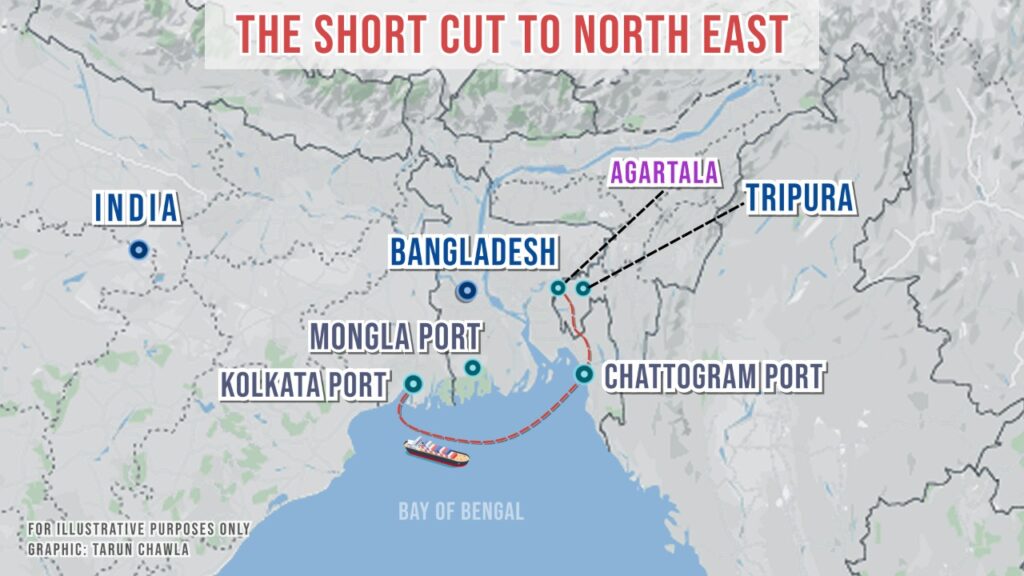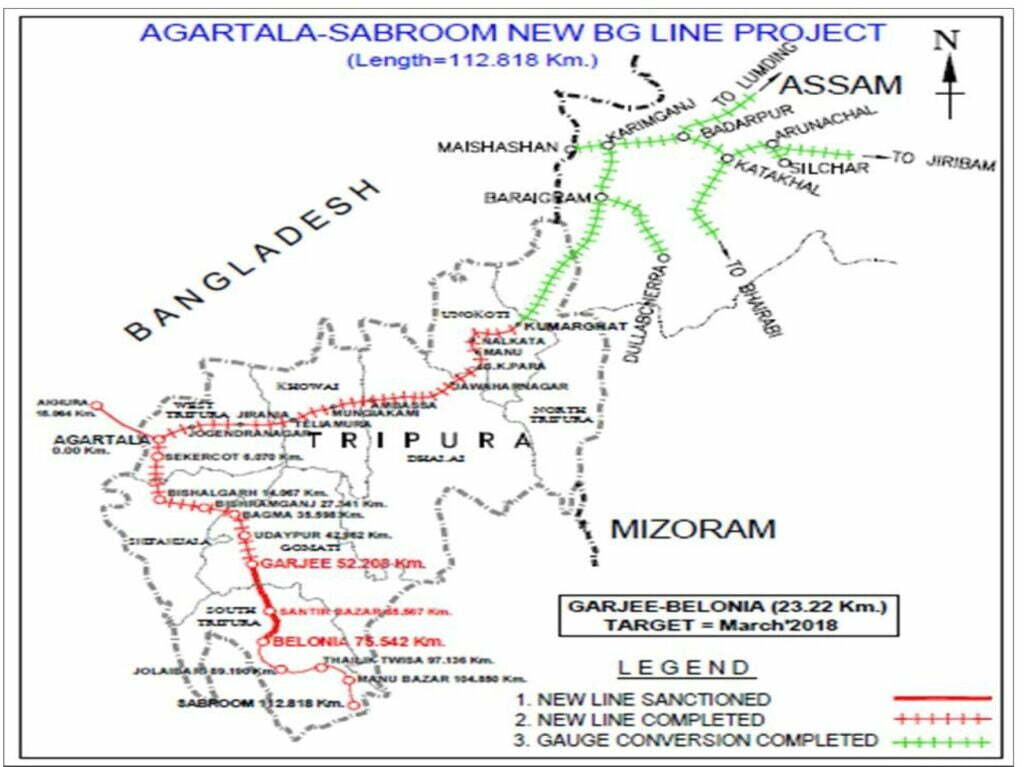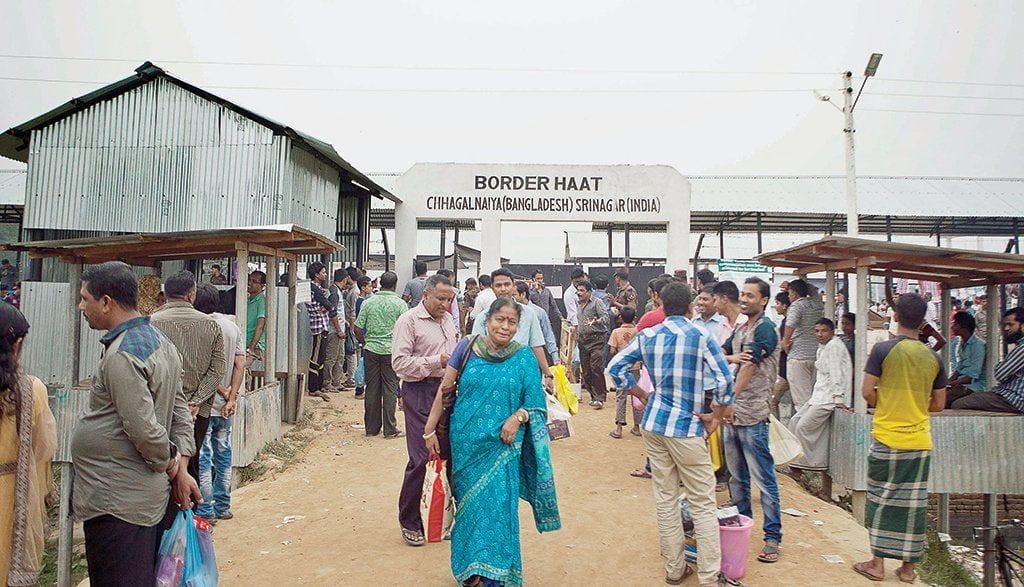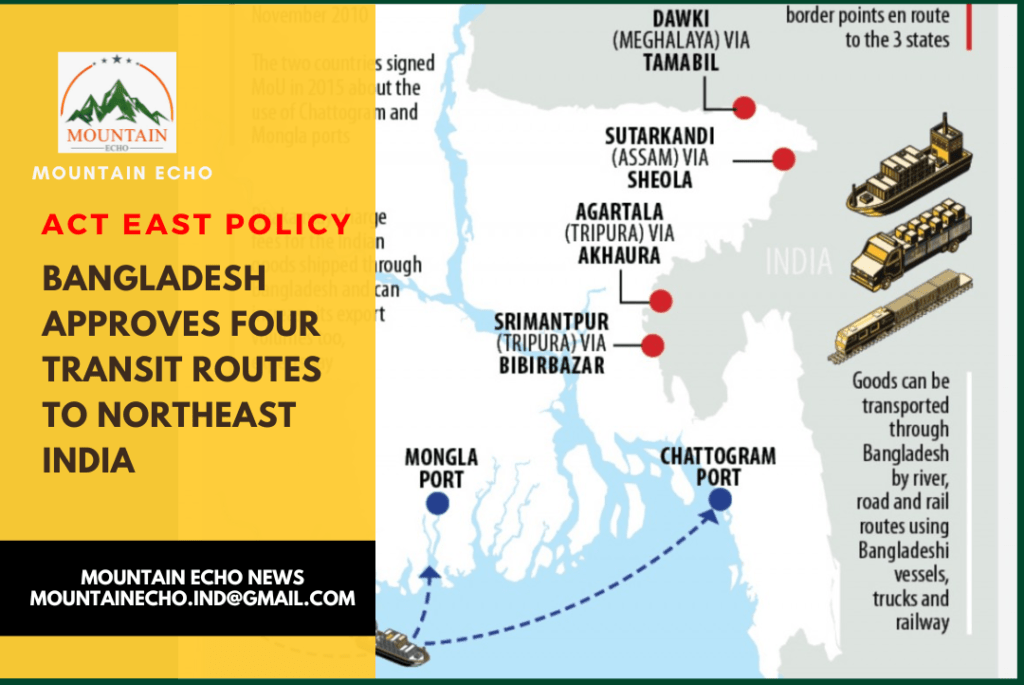Bangladesh approves Four Transit Routes to Tripura, Northeast India
WhatsApp Channel
Join Now
The Bangladesh Government has approved four transit routes for transportation of goods to Tripura and other Northeast states. This is a significant step towards enhancing trade ties and fostering regional cooperation. The four approved routes are:
- Chittagong Port-Akhaura-Agartala,
- Mongla Port-Akhaura-Agartala,
- Chittagong-Bibirbazar-Srimantapur, and
- Mongla Port-Bibirbazar-Srimantapur
These transit routes, hold the potential to revolutionize trade dynamics in the region. It paves the way for Indian traders to leverage the utilization of Mongla and Chittagong ports for shipping goods. By doing so, the transportation process will be streamlined, leading to a reduction in both expenses and time associated with moving goods in the northeastern part of India.

Until the opening of the routes, transportation of goods to and from northeast India had to go though a the lengthy route passing the narrow Siliguri chicken-neck corridor to reach the Kolkata port. The new transit routes will allow traders to take advantage of the shorter distance through Bangladesh, bringing down transportation costs drastically.

The Government is also developing a multi-model transit hub at Sabroom, which will play a huge role in facilitating road and rail connectivity, expediting the transportation of goods to the ports.

The government of Tripura has also announced plans to establish nine “border haats” marketplaces where people from both sides can conduct businesses in direct trades. This will help to stimulate economic activities and also foster people-to-people interactions, further strengthening India-Bangladesh bilateral ties.
The new routes will bring a huge surge in trade between India and Bangladesh and will greatly benefit the northeastern states and overall economy of both nations. The shared vision of India and Bangladesh to fortify their relations through enhanced economic cooperation and closer ties underscores the commitment to regional development.
By aligning economic interests and promoting efficient trade routes, India and Bangladesh are setting the stage for a mutually beneficial partnership that can potentially serve as a model for regional cooperation in the broader context of international trade and diplomacy. As these initiatives gradually unfold, the region stands to reap the rewards of increased trade, better connectivity, and stronger diplomatic relations.
Telegram Channel
Join Now



